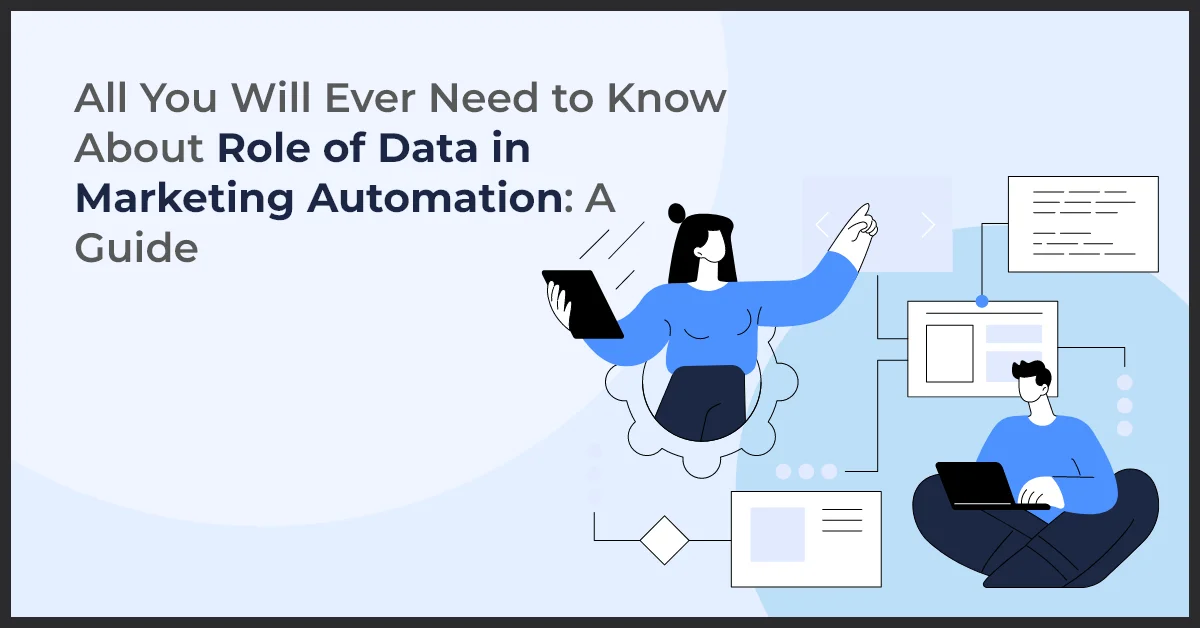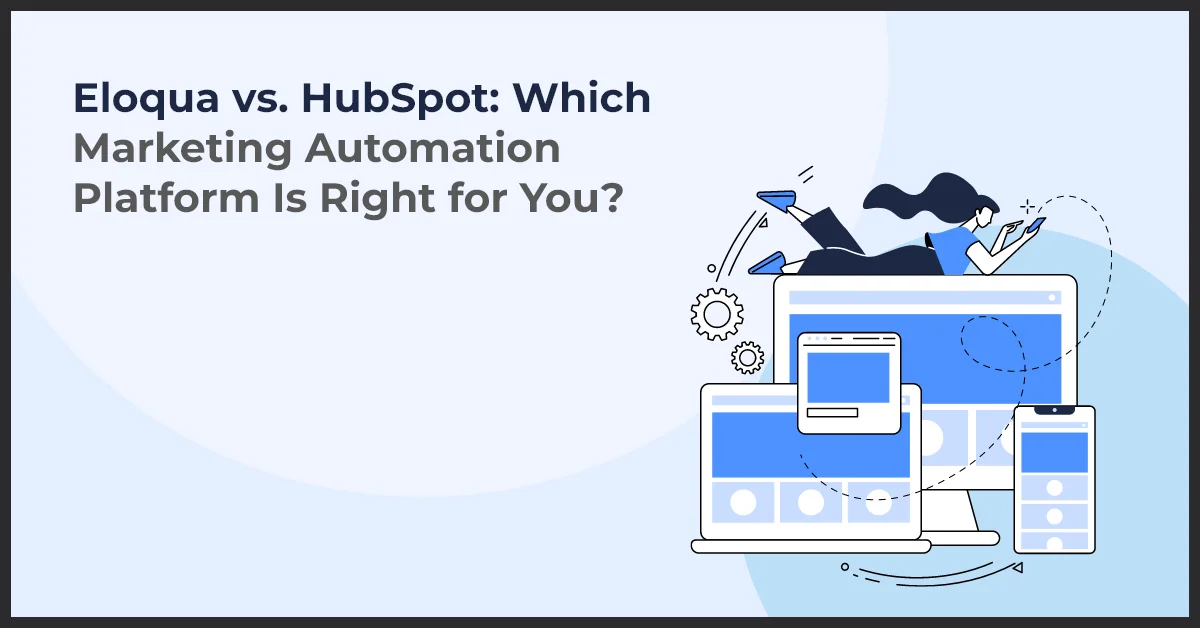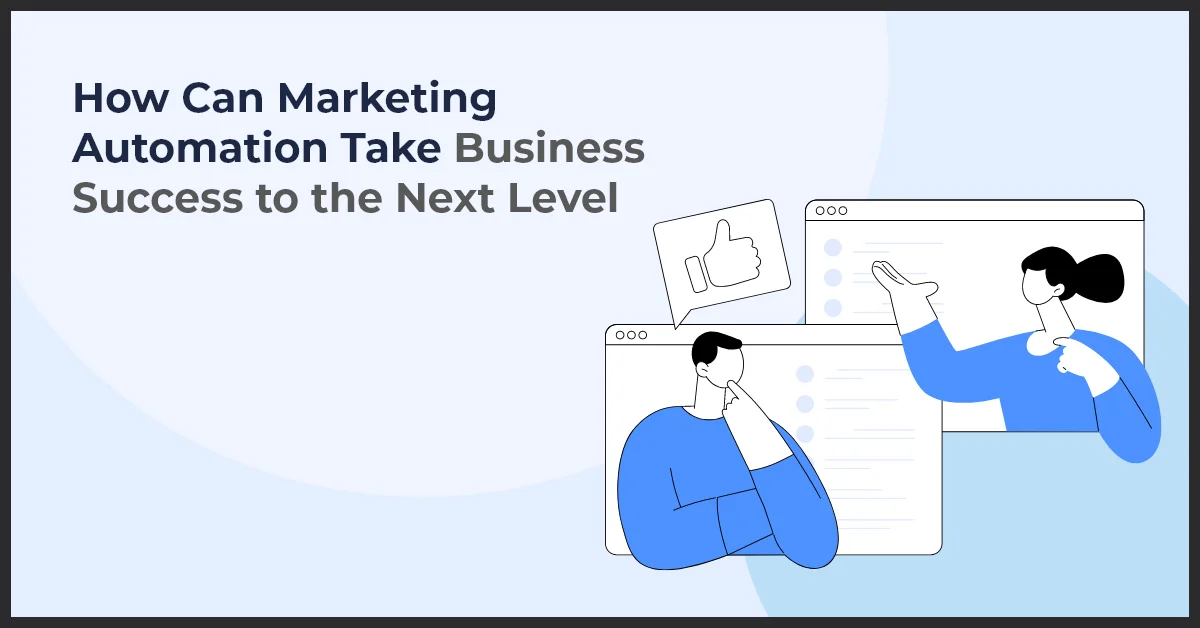Exploring the Importance of Data in Marketing Automation

Published on: April 13, 2023
Updated on: February 28, 2025
2016 Views
- Marketing Automation
11 min read
Marketing automation is a powerful tool that leverages technology to automate repetitive marketing tasks. However, the success of marketing automation strategies largely depends on the quality and type of data used.
There are several questions regarding data. For example, is public data personal data? Is genetic data personal data? Is employee data personal data? What is personal data protection? Is publicly available data personal data? Well, in this article we will address these questions and more and give you a clear insight into the role of data in marketing automation.
While some data, such as public data, can be used in marketing automation, it's important to understand which data types are considered personal data. For example, genetic and employee data are considered personal and require special care when used in marketing automation.
On the other hand, public data is available to the general public and can be freely used in marketing automation. However, it's important to note that just because data is public doesn't necessarily mean it's not personal data. For example, location data can be considered personal data if it can be used to identify an individual.
When it comes to genetic data and employee data, special care must be taken to ensure that this data is used in compliance with privacy regulations. Genetic data, such as DNA samples, are highly sensitive and require strict privacy protection. Employee data, such as salary information and performance reviews, also need special care, as they contain personal information about individuals.
What role does data play in marketing automation?
Data plays a crucial role in marketing automation by driving the effectiveness and precision of automated campaigns. It enables personalization by allowing businesses to segment audiences based on behavior, demographics, and preferences, thereby tailoring messages to individual needs. Data also supports performance tracking and analytics, helping businesses measure the success of campaigns, identify trends, and make data-driven decisions. Additionally, it facilitates lead scoring and nurturing, where automated workflows use data to prioritize leads and guide them through the sales funnel. By leveraging data, marketing automation systems can enhance targeting, improve engagement, and optimize overall campaign performance.
The Importance of Quality Data
Simply put, data is the fuel that drives successful marketing automation strategies. However, the quality of the data used in marketing automation can make or break the success of a campaign. So, let’s explore why quality data is crucial for effective marketing automation.
Accuracy
Data quality affects the accuracy of your marketing automation efforts. Poor-quality data can lead to inaccurate targeting, wasting time and resources. For example, if your customer data is outdated or incorrect, you may target the wrong audience with your marketing campaigns. This can result in low engagement rates and poor ROI.
Credibility
In addition to accuracy, poor-quality data can also impact the credibility of your marketing automation efforts. Imagine receiving an email with your name misspelled or being targeted with ads for products you are not interested in. This can create a negative impression of your brand, resulting in lower customer trust and loyalty.
Compliance
Furthermore, poor-quality data can lead to compliance issues when it comes to personal data. For example, using genetic or employee data without proper consent can result in legal and ethical violations, leading to fines and reputational damage.
To illustrate the impact of poor-quality data, let's look at some examples. Suppose a company has outdated customer data and targets customers who have already purchased. This results in wasted marketing spend and missed opportunities to target new customers. Alternatively, if a company uses public data that is personal data, they risk violating privacy regulations and damaging its reputation.
Poor-quality data can lead to wasted time and resources, lower customer trust, and compliance issues. Therefore, it's important to invest in high-quality data and regularly review and maintain your customer data to ensure the accuracy and effectiveness of your marketing automation efforts.
The Sources of Data for Marketing Automation (Personal Data Vs Non-Personal Data)
Marketing automation relies heavily on data to create personalized and effective campaigns. In this section, we'll explore the different data sources that can be used in marketing automation and how they can be leveraged to drive successful campaigns.
The data sources for marketing automation can be divided into two main categories: personal and non-personal data.
- Personal data includes genetic, employee, and location data, which require special care and attention to privacy regulations.
- Non-personal data includes publicly available data, maintenance data, and other data types that can be used freely in marketing automation.
Personal Data
Personal data, such as genetic and employee data, can be used to create highly targeted campaigns. For example, by analyzing employee data, a company can create personalized training programs and offer incentives that cater to each employee's needs.
Similarly, by leveraging genetic data, companies can create personalized products and services that cater to specific genetic predispositions. However, it's important to ensure that these types of personal data are collected and used in compliance with privacy regulations.
Non-Personal Data
Non-personal data, such as publicly available and maintenance data, can also be used in marketing automation. For example, by analyzing publicly available data on social media, companies can gain insights into customer behavior and preferences, which can be used to create personalized marketing campaigns.
Maintenance data, such as data on the usage and performance of products, can be used to identify opportunities for upselling and cross-selling.
To illustrate the power of different types of data in marketing automation, let's look at some examples.
- A retail company can use location data to send personalized offers to customers based on their proximity to stores.
- A healthcare company can use genetic data to create personalized patient treatment plans.
- A software company can use publicly available data to analyze user behavior and improve its product offerings.
By leveraging personal and non-personal data, companies can create highly targeted and personalized campaigns that drive results. However, it's important to ensure that personal data is collected and used in compliance with privacy regulations.
The Role of Machine Learning in Marketing Automation
Marketing automation is becoming increasingly complex, and machine learning has emerged as a powerful tool to help marketers make sense of the vast amounts of data at their disposal. Let’s explore the role of machine learning in marketing automation and how it can improve the accuracy and effectiveness of marketing campaigns.
So, if you are relatively new to machine learning, here is a quick overview.
Machine learning is a kind of artificial intelligence that lets computers learn and make decisions based on data, without needing someone to tell them what to do. In marketing automation, machine learning can analyze customer behavior and preferences, identify patterns and trends, and create personalized campaigns based on those insights.
Benefits of Machine Learning in Marketing Automation
One of the key benefits of machine learning in marketing automation is its ability to automate tasks that would otherwise be time-consuming and labor-intensive.
For example, machine learning algorithms can analyze customer data in real time and automatically adjust marketing campaigns based on customer behavior.
This means that marketers can spend less time analyzing data and more time creating compelling campaigns that resonate with their target audience.
Another benefit of machine learning in marketing automation is its ability to improve the accuracy of predictions and decisions.
For example, machine learning algorithms can analyze large amounts of data to identify patterns and trends humans might miss. This can lead to more accurate predictions about customer behavior and preferences, which can help marketers create more effective campaigns.
To illustrate the power of machine learning in marketing automation, let's look at some examples.
- A retail company can use machine learning algorithms to analyze customer data and identify patterns in buying behavior. This can help them create personalized offers tailored to each customer's preferences, resulting in higher sales and customer satisfaction.
- Similarly, a software company can use machine learning algorithms to analyze user behavior and identify areas where their product can be improved. This can lead to more effective marketing campaigns and better user experiences.
By automating tasks, improving the accuracy of predictions and decisions, and enabling personalized campaigns, machine learning can help marketers create more effective campaigns that drive results.
The Importance of Data Governance in Marketing Automation
Data governance means making sure that the data used in an organization is available, can be used correctly, is accurate, and kept safe. In marketing automation, data governance is critical to ensuring that data is accurate, consistent, and reliable.
Effective data governance is essential in marketing automation because it ensures that the data used to create campaigns is accurate and reliable. This means that marketers can be confident that their campaigns are based on valuable insights, which can help them make better decisions and achieve better results.
On the other hand, poor data governance can have severe consequences for marketing automation. For example, if data is inaccurate or inconsistent, it can lead to inaccurate insights, resulting in ineffective campaigns.
Similarly, if data is not adequately secured, it can be vulnerable to hacking or other cyber threats, leading to data breaches and damage to the organization's reputation.
To illustrate the importance of data governance in marketing automation, let's consider an example. A financial institution wants to create a targeted marketing campaign for its credit card customers. To do this, it needs to analyze customer data to identify patterns in spending behavior.
However, if the data is not governed correctly, there is a risk that the analysis will be based on inaccurate or incomplete data. This could result in ineffective campaigns that fail to resonate with customers.
Effective data governance can improve the accuracy and effectiveness of marketing campaigns in several ways. For example, it can ensure that data is consistent and reliable, which can help marketers make more accurate predictions about customer behavior. It can also help ensure that data is adequately secured, reducing the risk of data breaches and protecting the organization's reputation.
Final Thoughts
We can see that data is the fuel that drives successful marketing automation strategies. Quality data is essential for creating personalized and effective campaigns, and marketers can use various sources of data, such as customer behavior, demographics, and purchasing history. Machine learning can also play a significant role in improving the accuracy and effectiveness of marketing automation.
However, it's important to note that data governance is critical to the success of marketing automation. Poor data governance can lead to inaccurate insights and ineffective campaigns, damaging an organization's reputation and bottom line.
By contrast, effective data governance ensures that data is accurate, reliable, and secure, which can help marketers create more effective campaigns that drive results.
Key Takeaways
- Data in Marketing Automation is crucial for driving personalized and effective campaigns, enabling businesses to segment audiences based on behavior, demographics, and preferences, thereby tailoring messages to individual needs.
- High-quality data is essential for marketing automation success, as it impacts accuracy, credibility, and compliance. Poor-quality data can lead to wasted resources, lower customer trust, and compliance issues.
- Marketing automation relies on both personal and non-personal data. Personal data, such as genetic and employee data, requires special care due to privacy regulations, while non-personal data, like publicly available information, can be used freely.
- Machine learning plays a vital role in marketing automation by automating tasks, improving prediction accuracy, and enabling personalized campaigns based on customer behavior and preferences.
- Effective data governance is critical for ensuring that data is accurate, consistent, and secure, which is essential for creating successful marketing automation campaigns that drive results.
Are You Struggling to Manage Your Customer Data Effectively?
Don’t worry; experts are Growth Natives have got you covered.
As a leading marketing automation agency, we understand the importance of data management in driving successful marketing automation campaigns. That's why we offer comprehensiveservices to help you collect, store, and analyze both personal and non-personal data more efficiently.
With our state-of-the-art data management tools, technologies, and methodologies, we can help you gain deeper insights into your customers' behaviors and preferences, allowing you to create more targeted and personalized marketing campaigns.
Let us show you how we can help you make the most of your customer data by analyzing your customer feedback and helping you uncover valuable insights that can inform your marketing strategies and help you drive more revenue.Email us at info@growthnatives.com or visit our website to learn more about our services.
Frequently Asked Questions
Marketing automation uses software to automate repetitive marketing tasks like emails, social media posts, and ad campaigns, enhancing efficiency and personalization, and driving sales growth.
Data automation involves using technology to automatically collect, process, and analyze data, reducing manual effort, minimizing errors, and improving accuracy and efficiency.
Accurate data collection methods are crucial for market research as they ensure reliable insights, inform strategic decisions, and help understand customer behavior and market trends effectively.
Data-driven insights enable precise customer targeting and segmentation by analyzing behaviors and preferences, allowing for personalized marketing strategies, increased engagement, and higher conversion rates.
High-quality data ensures accurate analysis, leading to effective marketing automation outcomes, improved targeting, personalized campaigns, and better customer experiences. Poor data quality can result in errors and ineffective strategies



